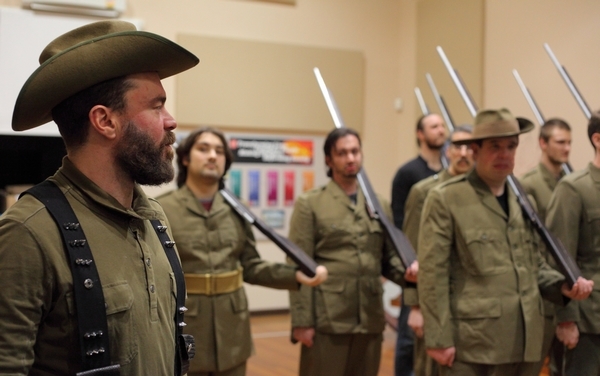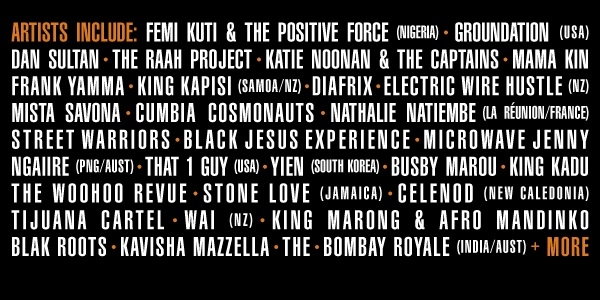Deciding to write a rock musical is a pretty ambitious undertaking without any background in musical theatre. Smith says his rock musical is aimed at the young gig punter as much as the theatre-goer. “We’ve got to compete with video games, action games, movies with action.” How did Smith even get started? “I basically watched every musical ever made,” he answers. “I started from scratch, wrote all new songs. I was pretty intimidated to start with. But you break it down into bite sized chunks and get on with it. Once I worked out what episodes required a song through emphasizing action, the songs just flowed.” The story of Albert Jacka, who won the first Victoria Cross for Australia in World War I, and the men of the 14th Battalion, is a story that Smith says ought to be much more widely known. “Jacka was so famous in Australia. He became the poster boy for the war, the face of recruitment. Jacka is a much better hero or role model than someone like Ned Kelly.”
How much research did Smith have to do? “Everything in the show is based on Michael’s book,” he answers. “Jacka’s story was written so well; had there not been a story already, there wouldn’t be this musical.” Smith notes that he has the support of the RSL: the production has been funded through the Victorian Government’s Anzac Centenary Major Projects Program, Veterans Branch, Department of Premier and Cabinet, and part of the proceeds of the show will be donated to veterans’ charities.
Smith instinctively knows something that any writer in the musical genre needs to understand: people fall in love, and during wartime, love affairs can be infinitely more intense than in times of peace. In this case it’s a brae Scots lass called Jean Campbell, played by Susannah Gidley. “The character of Jean Campbell is a little bit of relief from all the action,” says Gidley. “She’s got a really lovely gentle personality. Her story is a lovely sideline in the narrative for the audience. She falls seriously in love with a dashing captain, a rival of Jacka’s, who she met when he was in Scotland on holiday. She was taken by surprise, she never expected someone him to walk into her life and she falls in love quite quickly. Jean starts off as a bit naïve but she’s got guts, she’s got the kind of personality that is open to the world. She found something she wanted and the audience will be able to relate to the story of her love affair.”
The story travels from Gallipoli to Egypt and across to the UK and the Western Front. “We want to celebrate the sacrifices of ANZACs,” says Smith. “They were tough.” What made AB Jacka so extraordinary? “He was a rebel on the parade grounds. He back-chatted the general which was unheard of then but he got away with it. On May 19, a month after ANZAC day, the Turks had enough men on their side but the Australians rushed through and broke through the trenches. Jacka’s idea was to run around the back and dived into the trenches that way. It was crazy but he cleared one entire trench on his own; he killed or wounded all the Turks in that trench, He did crazier stuff, he became trapped behind enemy lines with 80 Germans and with only eight of his men. His actions were so foreign to the Germans who thought there must be at least 20 more men behind them and that the Australians were following orders. The Germans would never be that ill-disciplined. Jacka lived to tell that tale. He epitomised that warrior spirit.”
Smith’s interest in Australia’s first World War history began when he was living in England, a time when he, like so many others doing the same thing, realized just how Australian he was. “I wasn’t patriotic to begin with,” he says. “Like many artists I blamed Australia for the fact that I wasn’t getting anywhere. But then I realized how hard it was to get anywhere in England. I started reading Australian history and reconnected with Australia. I definitely came back here with the explicit plan to form a band and play music about Australian history. In Europe, especially with the Scandinavian rock bands, the history of their countries is a big part of their music. I thought, why can’t I go back and do something similar with Australian history?”
BY LIZA DEZFOULI







